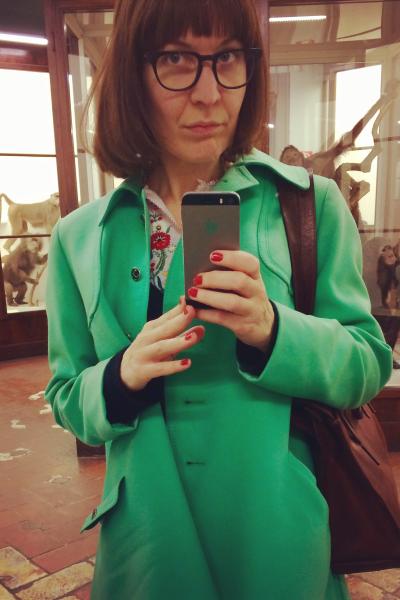Emma Hagström Molin
Researcher at Institutionen för idéhistoria
- E-mail:
- emma.hagstrom.molin@idehist.uu.se
- Visiting address:
- Engelska parken, Thunbergsvägen 3P
- Postal address:
- Box 629
751 26 UPPSALA
Download contact information for Emma Hagström Molin at Institutionen för idéhistoria
More information is available to staff who log in.
Short presentation
Emma Hagström Molin is a historian of ideas specialised in the history of archives, libraries, and their objects. Her current research project focuses on provenance – as a historically contingent concept, an organising principle, and a historiographical research practice conducted in European archives and libraries in the nineteenth century.
Keywords
- 19th-century historiography
- archives
- bookhistory
- collections
- history of archive practices
- history of humanities
- history of ideas and science
- material turn
- spoils of war
Biography
Emma Hagström Molin is a historian of ideas specialised in the history of archives, libraries, and their objects. Her current research project focuses on provenance – as a historically contingent concept, an organising principle, and a historiographical research practice conducted in European archives and libraries in the nineteenth century.
Hagström Molin has a BA in book history, and her doctoral thesis explores the fate of seventeenth-century war booty – mainly archival documents, manuscripts, and books – taken by Swedish regents and field marshals during their respective military campaigns in Europe. It has been revised for publication in English in Brill’s series Library of the Written Word in 2021. Hagström Molin is currently affiliated with Uppsala University, and has previously been a visiting postdoctoral fellow at the Max Planck Institute for the History of Science (Daston) and the Humboldt-Universität in Berlin (te Heesen).
Research
Provenance in 19th-Century Europe: Research Practice and Concept
The purpose of this project is to analyze provenance, as a historically contingent concept and research practice that emerged in 19th-century Europe. Recently proclaimed to be a science in its own right, few scholarly terms are as topical as provenance: the history of an object told through its chain of locations and owners. Provenance has a history of its own, however, and the project argues that, while the art market and nationalism are important, scholars representing regions with a suppressed past and present are key to understanding the rise of provenance and its research, by examining the cases of Beda Dudík (Moravia/Austria), Carl Schirren (the Baltics/Livonia/Russia), and Franz Hipler (Warmia/East Prussia), ca. 1850–1900. Due to Swedish regents’ looting in the 17th century, Dudík, Schirren, and Hipler were dependent on foreign archives and libraries when researching regional history. The project’s main sources are their publications describing this provenance research. Theoretically, provenance is understood as a process, determined through and affected by practices such as locating, classifying, and moving manuscripts, documents, and other historical sources. It became very important to regional historians, as determining provenance equaled existence. By merging regional inferiority and transnational dependencies, diverse institutional settings, and political, religious, and scholarly ambitions, these cases reveal the needs and encounters that explain provenance.
Publications
Recent publications
- Discovering Moravian History (2022)
- Provenance Research (2022)
- Provenance in nineteenth-century Europe (2021)
- Dudík: Correspondence with Gustaf Edvard Klemming (1875–76) (2019)
- Spoils of Knowledge (2019)
All publications
Articles
- Provenance Research (2022)
- Provenance in nineteenth-century Europe (2021)
- Skattjakten (2017)
- To Place in a Chest (2015)
Books
Chapters
- Discovering Moravian History (2022)
- Spoils of Knowledge (2019)
- Krigsbyten i Uppsala universitetsbibliotek under 1600-talet (2016)
Other

